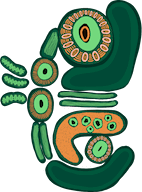
Women’s unique dental health
Women can often be caught putting others needs before their own. But they deserve to invest the time in their dental health to ensure they have a healthy smile. Because a woman’s mouth, much like her other body systems, has its own unique care.
Female hormonal changes occurring over various life stages and ages can have an impact on oral health. Changes in the levels of oestrogen, progesterone and testosterone amongst others can occur naturally during menstruation, pregnancy and menopause or from medications such as the birth control pill, acne treatments or hormone replacement therapy (HRT) 1.
Times are changing
Puberty – girls can experience differing effects of hormonal changes in their bodies as they go through puberty. Bleeding or swollen gums can occur as a result of ‘puberty gingivitis’. Puberty often corresponds with having braces or orthodontic treatment in teens, which means more attention should be given to brushing and flossing. A diet low in fizzy drinks and sugar is recommend along with regular check-up visits to your dentist.
Menstruation – heightened mouth sensitivity can be experienced in the week before they start their period. Hormonal influences, including plaque build-up can often lead to changes in the mouth however it is dependent on the individual as to whether women experience menstruation related changes to their oral health.
Pregnancy – pregnancy gingivitis is a time limited condition, often starting in the first trimester but if left untreated can progress to a more chronic long term gum infection. The tissues which hold the teeth in their correct position can become weakened if gum inflammation and bleeding isn’t managed carefully. Red lumpy spots can also form along the gum line and in-between the teeth. These ‘pyogenic granulomas’ are harmless and usually go away once the baby is born. Gum disease in pregnancy may also increase the risk of having a baby born early and with low birth weight. As a result of acidity in the mouth from morning sickness and cravings for food rich in sugar, sensitivity to the teeth and an increased risk of tooth decay can also occur.
Menopause – a burning sensation in the mouth and changes in taste can be felt when a woman is going through menopause. Inflamed gums and a dry mouth are common, as is increased sensitivity to hot and cold food and drinks. Reduction in bone density in menopause can also have a negative impact on the jaw bones and jaw joints. Ensure you have updated your medical history and any medications you are taking (especially if you are taking any medication for osteoporosis) when you visit the dentist.
How to avoid dental health problems, no matter what life-stage you’re at
Keep your mouth, teeth, and gums healthy by:
- Brushing your teeth at least twice daily with a soft, small headed toothbrush if your gums are sensitive from hormonal influence, you may need to brush more gently.
- Restricting your intake of sweet foods and eating a nutritious diet. Be especially mindful of food cravings during pregnancy and reach for healthy snacks like yoghurt, (hard) cheese and fruit.
- Flossing every day, paying special attention to the space between teeth. Wrap the floss in a ‘c’ shape around the top of each tooth where it meets the gum and remove any food caught in this space. Speak with your dentist if you notice any blood on the floss. This can be a sign of gingivitis and left untreated, may become a risk factor for early labour.
- To help prevent complications at a later stage of life, taking great care of your teeth can make a difference.
Dentists at nib Dental are experts when it comes to supporting women during different life stages. Book an appointment with your dentist for regular check-ups and to monitor any changes you may experience.
References
-
- https://www.ncbi.nlm.nih.gov/pmc/articles/PMC4247552/
- https://www.ada.org.au/Dental-Health-Week-2016/Women-and-Oral-Health/Menstruation
- https://www.colgate.com.au/oral-health/life-stages/oral-care-during-pregnancy
